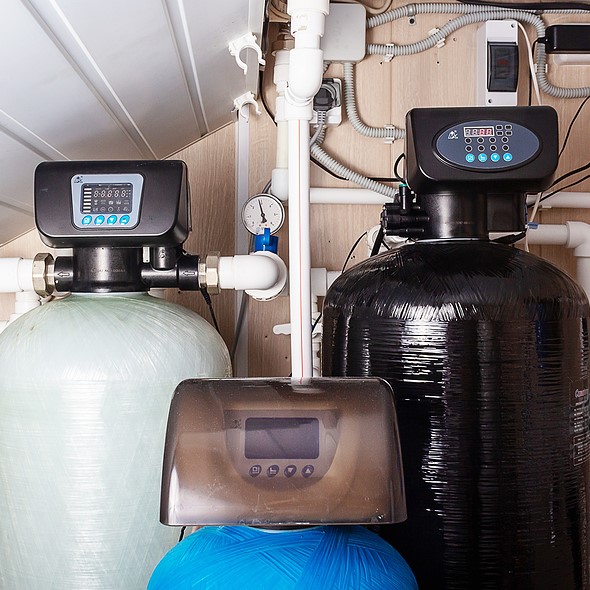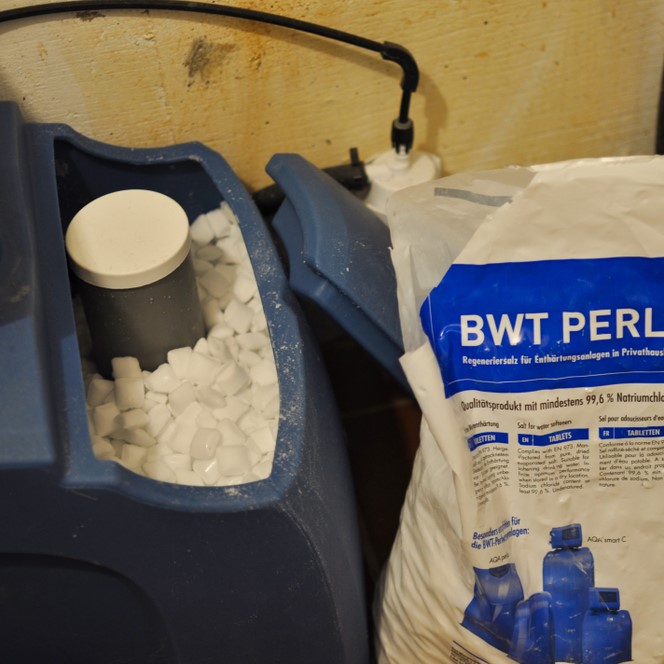Guide to Home Drinking Water Treatment Technologies
 Choosing a filtration system for your home can be tough! There are so many different types of water treatment technology. So what will be the best solution for your home? We have created this guide to drinking water treatment technology to help you answer that question.
Choosing a filtration system for your home can be tough! There are so many different types of water treatment technology. So what will be the best solution for your home? We have created this guide to drinking water treatment technology to help you answer that question.
There are five types of water treatment systems: filtration systems, reverse osmosis systems, distillation systems, ultraviolet treatment systems, and water softeners. What system would be best for your home depends on the quality of your water. For example, do you need a drinking water solution to remove heavy metals like lead from city water? Or one that can kill bacteria and viruses in well water? Read on to find out how these water treatment systems work and what contaminants they can remove.
5 Types of Water Treatment
1. Water Filtration Systems
Filtration Systems act as a sieve. As water passes through a medium, like activated carbon, contaminants are captured.
Filtration systems vary widely based on how finely they filter water. Some are designed to remove large particulates like grit, sand, and dirt. Others, such as granular activated carbon filtration systems, are designed to remove a broader range of contaminants like heavy metals, VOCs, pesticides, nitrates, and hydrogen sulfide.
2. Reverse Osmosis Systems
Reverse Osmosis (RO) Systems purify water as it moves through a semi-permeable membrane.
RO systems have pore sizes around 0.0001 microns, meaning they can catch microscopic particulates.
RO systems are highly effective at removing protozoa like Cryptosporidium, bacteria like Salmonella and E. coli, viruses like Hepatitis A and Norovirus, along with common chemical contaminants like sodium, chloride, copper, chromium, and lead. They may also catch arsenic, fluoride, radium, sulfate, calcium, magnesium, potassium, nitrate, and phosphorous.
3. Distillation Systems
Distillation Systems turn water into steam and capture it once it’s left contaminates behind.
Like RO systems, distillation systems are highly effective at removing protozoa like Cryptosporidium, bacteria like Salmonella and E. coli, viruses like Hepatitis A and Norovirus, along with common chemical contaminants like sodium, chloride, copper, chromium, and lead. They may also catch arsenic, fluoride, radium, sulfate, calcium, magnesium, potassium, nitrate, and phosphorous.
The drawback of distillation systems is that they also remove beneficial minerals that give water a good taste.
4. Ultraviolet Treatment Systems
Ultraviolet (UV) Treatment Systems use ultraviolet light to disinfect water.
UV Treatment Systems are very effective at removing protozoa like Cryptosporidium, bacteria like Salmonella and E. coli, viruses like Hepatitis A, and Norovirus.
UV Treatment systems are not effective at removing chemicals.
 5. Water Softeners
5. Water Softeners
Water Softeners use ion exchange technology to capture minerals that cause water hardness.
Water softeners effectively remove calcium and magnesium.
Water softeners can also be designed to remove other minerals like iron and manganese, along with heavy metals, some radioactivity, nitrates, arsenic, chromium, selenium, and sulfate.
Water softeners aren’t effective at removing protozoa, bacteria, and viruses.
How do you grade water treatment systems?
If you want to learn more about a particular water treatment system, check out the NSF database online! NSF International is an independent organization that sets public health standards for products. By checking their database, you can see the contaminates that a treatment system is certified to protect against.
If you are considering a filtration water treatment system, be sure to look at the pore size of the filter. The smaller the pore size, the more it can catch.
What water treatment system is right for my home?
Are you still debating what water treatment system you should choose? Finding out what is in your water and consulting a water treatment specialist are the best solutions to narrow your option. Call us to schedule a free in-home water analysis and consultation with a water treatment expert!
